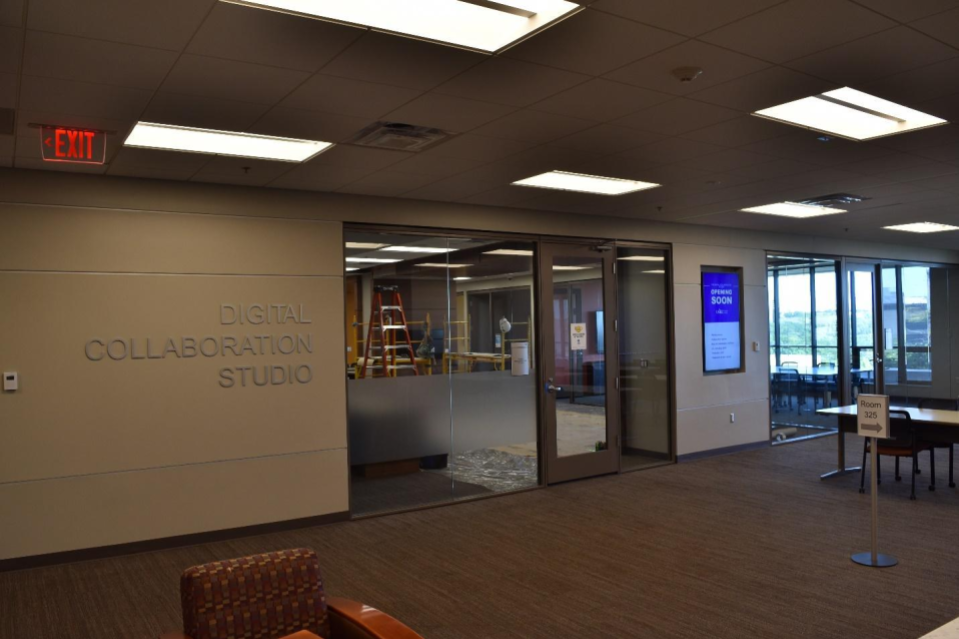Construction on UMKC’s Digital Collaboration Studio, located on the third floor of the Miller Nichols Library, is set to finish this month. The new space will allow students to create digital exhibits and presentations, explore data science methodologies, and conduct research. Faculty will also be able to use the studio to teach students about digital and public humanities.
The studio will not have all of its planned facilities immediately available, however, as the project has suffered some technological difficulties.
“We’re starting off with a minimal set of spaces and technology that we think will have the greatest impact on student learning and research,” said Sandy Rodriguez, associate dean of Special Collections and Archives.
Despite the setbacks, the space features an open collaboration space, a seminar room, two smaller collaboration rooms and a production room on opening day. The production room offers specialized support for the use of primary source material in digital imaging and editing. Laptops with faculty-recommended software are also available for use, in addition to audio and visual recording devices.
“We’re excited to have a collaborative space that’s outfitted with a variety of technology, and especially one that supports the creation and use of primary source materials,” Rodriguez said.
The recording studio, one of the planned spaces affected by setbacks, will eventually include technology for both novice and advanced users. Students will also be able to use one-touch audio and video recording equipment to create podcasts and oral history projects.
The development of the Digital Collaboration Studio accompanies UMKC’s plan to offer a minor in digital and public humanities in fall 2022 and the hiring of a new librarian with a digital emphasis. The new staff position will engage with the new digital humanities courses through student-curated digital exhibits, in addition to maintaining digital collections of rare and unique materials.
UMKC senior Caitlin Quirk said both the focus on digital studies and the creation of the new studio will be beneficial for students on campus.
“I am excited [digital humanities] is becoming more prominent in academics,” Quirk said.
rbskf9@mail.umkc.edu








